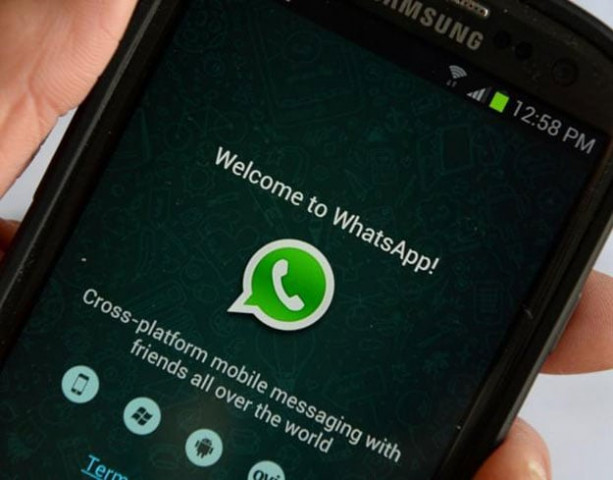UK to ban WhatsApp within weeks
British PM is pressing for a legislation which stops people from sending any form of encrypted messages

PHOTO: AFP
British Prime Minister David Cameron pressing ahead with new legislation which plans to stop people from sending any form of encrypted messages. If the law is passed all online messaging services which scramble communications between their users could be banned.
Earlier this year, Cameron said, “In our country, do we want to allow a means of communication between people which we cannot read? My answer to that question is: ‘No, we must not’.”
Read: Cameron may ban Whatsapp, iMessage under new surveillance plans
A considerably large number of UK’s population uses WhatsApp, iMessage and Snapchat for messaging and all these services may be banned under the new legislation over scrambling communications between users.
WhatsApp has remained committed to keeping their services encrypted and unable to be read by authorities.
The Investigatory Powers Bill, which allows exclusive rights to the investigators, requires internet service providers, phone companies and technology firms such as Google, Apple, Facebook and WhatsApp to keep a record of all of your activity.
After the new legislation, the UK police and government are likely to get access to comprehensive yet troubling database information, which will include all Google searches, Facebook conversations, WhatsApp group messages and SnapChat videos. According to the UK home secretary, the bill could be passed by Autumn.
Read: WhatsApp testing out voice calling feature
"We have always been able, on the authority of the home secretary, to sign a warrant and intercept a phone call, a mobile phone call or other media communications," Cameron said.
“But the question we must ask ourselves is whether, as technology develops, we are content to leave a safe space, a new means of communication, for terrorists to communicate with each other.”
Recent terror attacks on Britons have forced the government to take such drastic measures ensuring the citizens’ safety. However, many have criticised the law as a breach of privacy.
“The government is signalling that it wants to press ahead with increased powers of data collection and retention for the police and GCHQ – spying on everyone, whether suspected of a crime or not,” Executive director of The Open Rights Group Jim Killock said.
Read: Twitter enables option to receive direct messages from anyone
Meanwhile, former deputy prime minister Nick Clegg slammed the Conservatives' bill and said, “We have every right to invade the privacy of terrorists and those we think want to do us harm, but we should not equate that with invading the privacy of every single person in the UK. They are not the same thing.”
While many criticise the upcoming controversial legislation, it is still unclear what will be the full extent of powers granted by the Investigatory Powers Bill.
This article originally appeared on Express.co.uk



















COMMENTS
Comments are moderated and generally will be posted if they are on-topic and not abusive.
For more information, please see our Comments FAQ